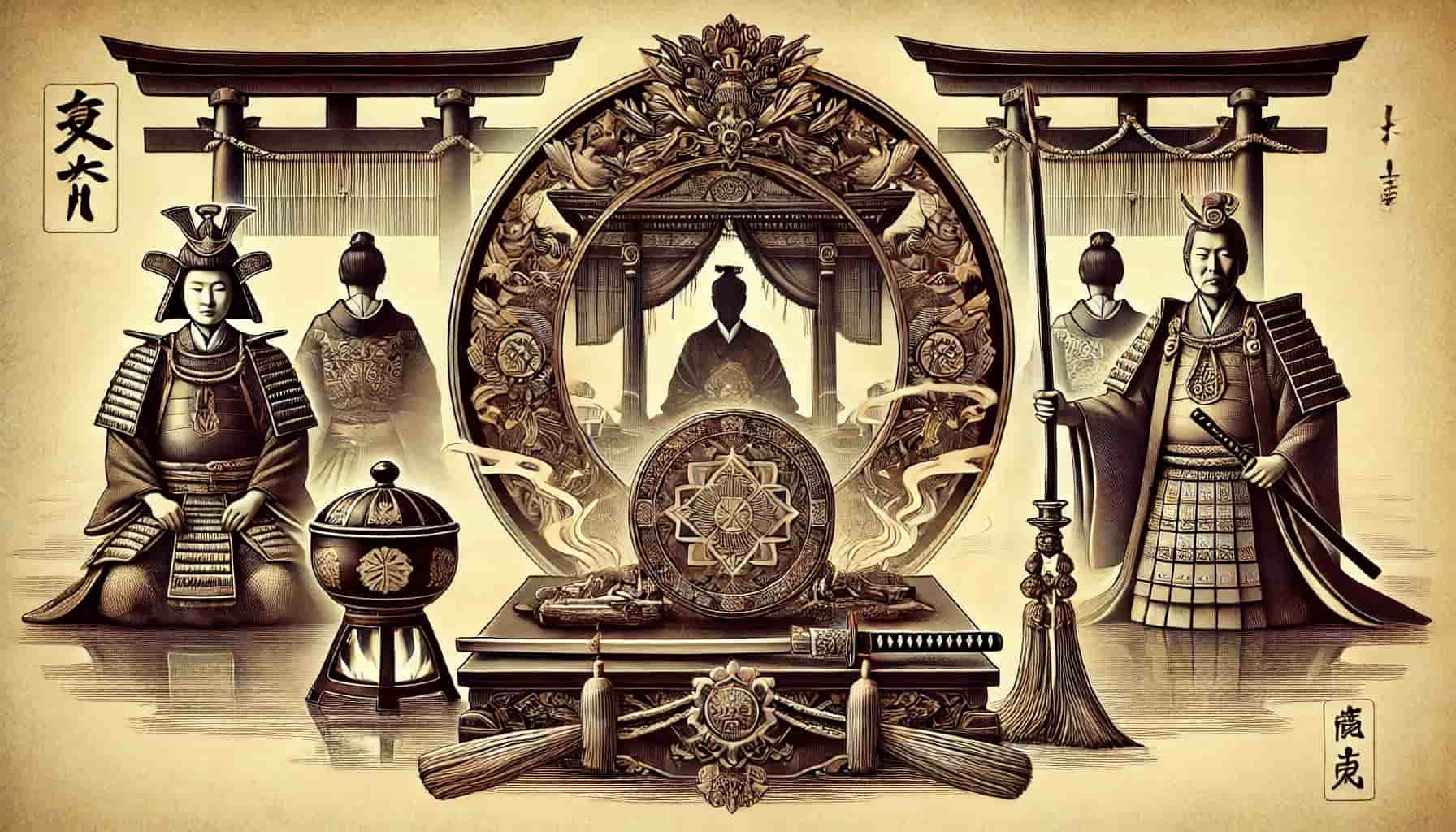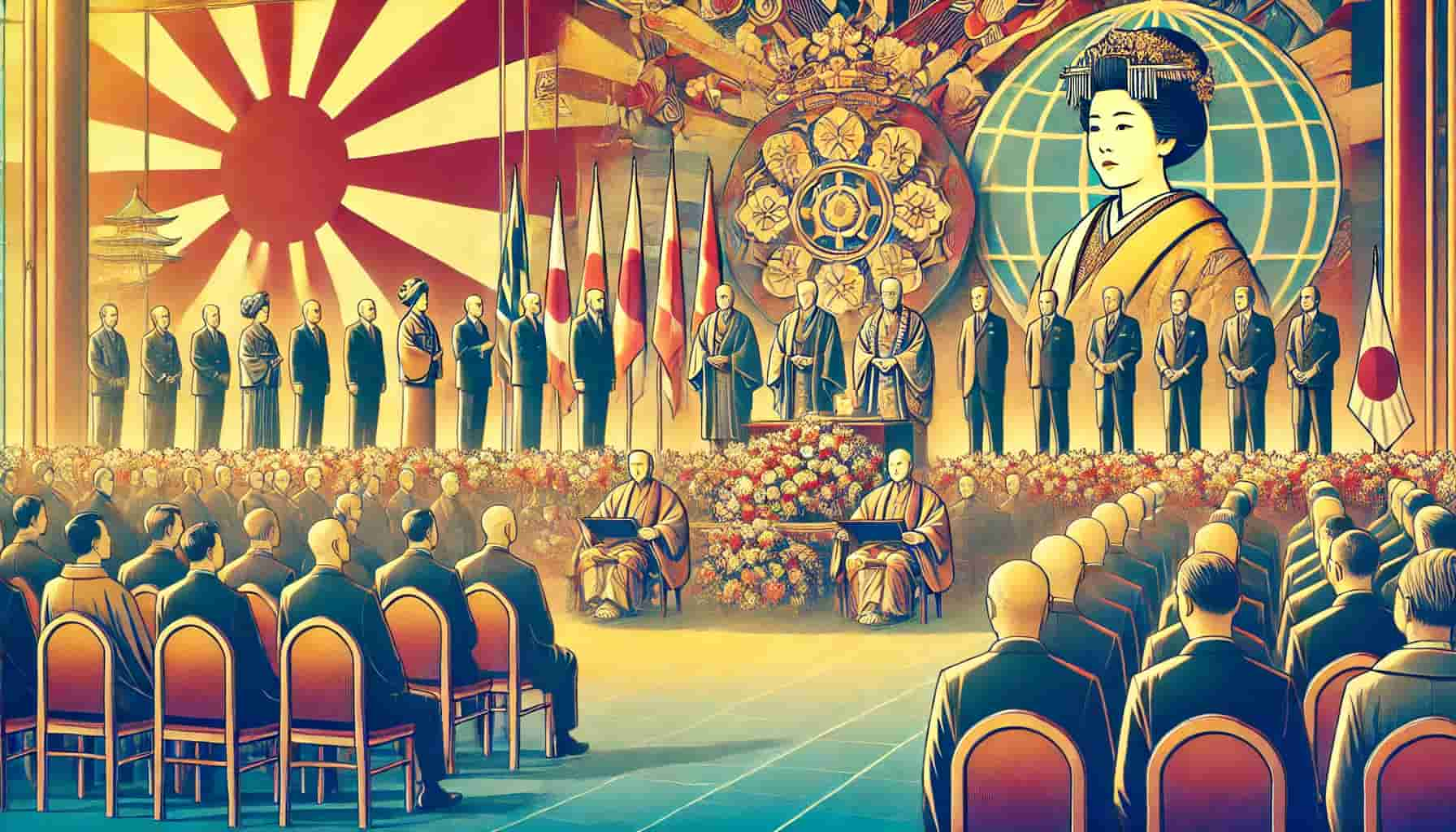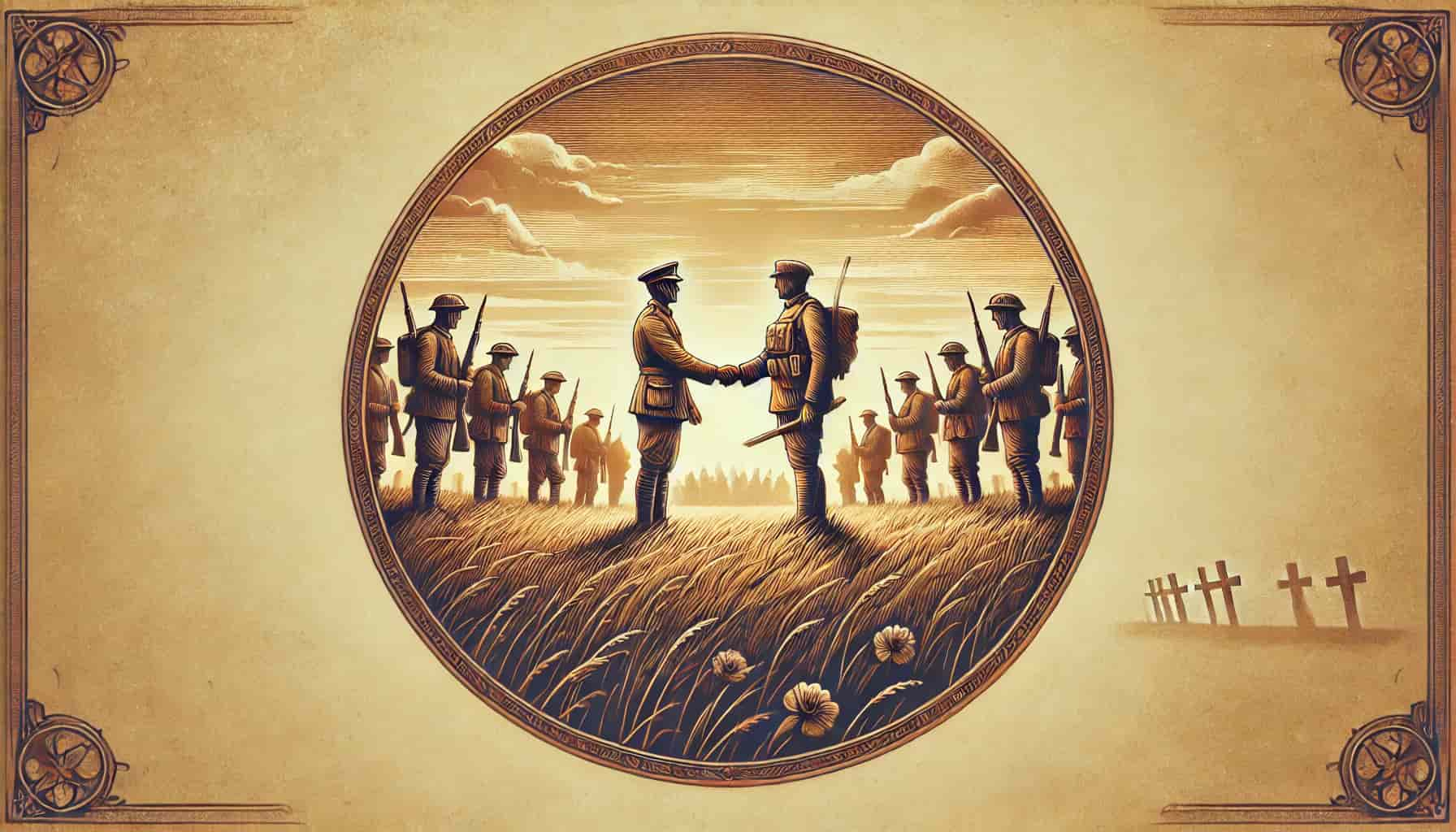Armistice Day, Remembering the End of World War I.
この英語教材のテーマは「実際の出来事でカジュアルな英語を学ぶ」
The theme of this English resource is “Learn casual English through real events.”
Section 1: The Significance of Armistice Day
Armistice Day marks the end of World War I, a conflict that lasted for more than four years and involved many nations around the globe. On November 11, 1918, Germany and the United States signed an armistice agreement, bringing an end to hostilities. This day is commemorated as an international day of remembrance, honoring those who served and sacrificed during the Great War. Today, it’s important to remember the lessons learned from this war and to “keep the peace” for future generations.
Q1: What is the significance of November 11, 1918?
Sample Answer: November 11, 1918, marks the day when an armistice agreement was signed between Germany and the United States, ending World War I.
Q2: How is Armistice Day observed in the United States today?
Sample Answer: In the United States, Armistice Day is now called Veterans Day, and it honors all military veterans with ceremonies and moments of silence.
Q3: What lesson can we learn from World War I?
Sample Answer: One lesson we can learn from World War I is that conflicts can “get out of hand” quickly if not addressed through diplomacy and cooperation.
Now, let’s talk using idioms.
・Let the students choose one favorite idiom and make an example sentence.
Idiom Explanation: “Keep the peace“
“Keep the peace” means to maintain peace and avoid conflict. It is often used in contexts where harmony and stability are desired.
Example Sentence: The neighbors had a small argument, but they decided to “keep the peace” for the sake of their community.
セクション 1: 休戦記念日の重要性
休戦記念日は、4年以上続いた世界大戦である第一次世界大戦の終結を記念する日です。1918年11月11日、ドイツとアメリカの間で休戦協定が結ばれ、戦闘が終結しました。この日は国際的な記念日として、偉大な戦争で奉仕し犠牲を払った人々を讃えるために記念されています。今日、この戦争から得た教訓を思い出し、未来の世代のために”平和を保つ“ことが大切です。
Q1: 1918年11月11日の重要性は何ですか?
サンプルアンサー: 1918年11月11日は、ドイツとアメリカの間で休戦協定が結ばれ、第一次世界大戦が終結した日です。
Q2: 今日、アメリカではどのように休戦記念日が祝われていますか?
サンプルアンサー: アメリカでは、休戦記念日は現在ベテランズデーと呼ばれ、全ての軍人を讃えるために式典や黙祷が行われています。
Q3: 第一次世界大戦から学べる教訓は何ですか?
サンプルアンサー: 第一次世界大戦から学べる教訓は、紛争は外交と協力を通じて対処しないとすぐに”手に負えなくなる”ことがあるということです。
イディオムの解説: “平和を保つ“
: “Keep the peace“
“平和を保つ”とは、平和を維持し、対立を避けることを意味します。調和と安定が求められる状況でよく使われます。
例文: 近所の人たちは小さな口論をしましたが、コミュニティのために”平和を保つ“ことにしました。
Section 2: How Armistice Day is Observed

Armistice Day is observed in different ways around the world. In the United States, it eventually became Veterans Day, a day to honor all military veterans. Ceremonies are held at war memorials, and moments of silence are observed to “pay tribute” to those who fought. In some countries, people wear red poppies as a symbol of remembrance. The goal of these ceremonies is not only to remember the past but also to encourage future generations to value peace and freedom.
Q1: What is Armistice Day now called in the United States?
Sample Answer: Armistice Day is now called Veterans Day in the United States.
Q2: How is Armistice Day observed in the United States today?
Sample Answer: In the United States, Armistice Day is now called Veterans Day, and it honors all military veterans with ceremonies and moments of silence.
Q3: What symbol is often worn on Armistice Day in some countries?
Sample Answer: In some countries, people wear red poppies as a symbol of remembrance.
Now, let’s talk using idioms.
・Let the students choose one favorite idiom and make an example sentence.
Idiom Explanation: “Pay tribute“
“Pay tribute” means to show respect or admiration for someone or something, often in a formal way. It can be used when commemorating important people or events.
Example Sentence: The community gathered to “pay tribute” to the soldiers who fought in the war.
セクション 2: 休戦記念日の祝われ方
休戦記念日は世界中でさまざまな方法で祝われています。アメリカでは、最終的にベテランズデーとなり、全ての退役軍人を讃える日となりました。戦争記念碑で式典が行われ、戦った人々に対して黙祷を捧げることで”敬意を表す“ことが行われています。一部の国では、赤いポピーの花を追悼のシンボルとして身に着けます。これらの式典の目的は過去を記憶するだけでなく、将来の世代に平和と自由の価値を尊重することを促すことでもあります。
Q2: 今日、アメリカではどのように休戦記念日が祝われていますか?
サンプルアンサー: アメリカでは、休戦記念日は現在ベテランズデーと呼ばれ、全ての退役軍人を讃えるために式典や黙祷が行われています。
Q1: アメリカでは休戦記念日は今何と呼ばれていますか?
サンプルアンサー: アメリカでは休戦記念日は現在ベテランズデーと呼ばれています。
Q3: 一部の国で休戦記念日に身に着けられるシンボルは何ですか?
サンプルアンサー: 一部の国では、赤いポピーの花が追悼のシンボルとして身に着けられます。
イディオムの解説: “敬意を表す“
: “Pay tribute“”敬意を表す”とは、誰かや何かに対して尊敬や感謝の気持ちを示すことを意味します。重要な人々や出来事を記念する際によく使われます。
例文: コミュニティは戦争で戦った兵士たちに”敬意を表す“ために集まりました。
Section 3: Lessons Learned from World War I

World War I taught us many lessons about the cost of war and the importance of diplomacy. It showed how quickly conflicts can “get out of hand” if not addressed early on. The Great War was a stark reminder of the consequences of unchecked aggression and the need for international cooperation. Today, these lessons remind us to value dialogue and negotiation over conflict, ensuring that the horrors of the past do not repeat themselves.
Q1: What did World War I teach us about conflicts?
Sample Answer: World War I taught us that conflicts can get out of hand quickly if not addressed early on.
Q2: Why is international cooperation important according to the lessons of World War I?
Sample Answer: International cooperation is important to prevent the unchecked aggression that led to World War I.
Q3: What can we do today to avoid the horrors of the past?
Sample Answer: We can value dialogue and negotiation over conflict to ensure the horrors of the past do not repeat themselves.
Now, let’s talk using idioms.
・Let the students choose one favorite idiom and make an example sentence.
Idiom Explanation: “Get out of hand“
“Get out of hand” means to become uncontrollable or chaotic. It is often used to describe situations that escalate beyond what was expected or manageable.
Example Sentence: The debate between the two friends started off calmly, but it soon “got out of hand” when they began shouting at each other.
セクション 3: 第一次世界大戦から学んだ教訓
第一次世界大戦は、戦争の代償と外交の重要性について多くの教訓を私たちに教えてくれました。紛争が初期段階で対処されないと、どれだけ早く”手に負えなくなる“かを示しました。この大戦は、抑制されない侵略の結果と国際協力の必要性を鮮明に思い出させるものでした。今日、これらの教訓は、過去の恐怖を繰り返さないために対話と交渉を重視することの重要性を私たちに教えてくれます。
Q3: 第一次世界大戦からどのような教訓を学べますか?
サンプルアンサー: 第一次世界大戦から学べる教訓は、紛争は外交と協力を通じて対処しないとすぐに”手に負えなくなる”ことがあるということです。
Q1: 第一次世界大戦は紛争について何を教えてくれましたか?
サンプルアンサー: 第一次世界大戦は、紛争が初期段階で対処されないとすぐに手に負えなくなることを教えてくれました。
Q2: なぜ第一次世界大戦の教訓によると国際協力が重要ですか?
サンプルアンサー: 国際協力は、第一次世界大戦に至った抑制されない侵略を防ぐために重要です。
Q3: 今日、過去の恐怖を避けるために何ができますか?
サンプルアンサー: 私たちは、過去の恐怖を繰り返さないように対話と交渉を重視することができます。
イディオムの解説: “手に負えなくなる“
: “Get out of hand“
“手に負えなくなる”とは、制御不能または混乱した状態になることを意味します。予期していたまたは管理可能な状況を超えてエスカレートする状況を説明する際によく使われます。
例文: 二人の友人の議論は最初は穏やかに始まりましたが、すぐにお互いに怒鳴り始めて”手に負えなくなりました“。
Section 1: The Coronation of Emperor Showa
On November 10, 1928, Emperor Showa (Hirohito) officially ascended to the Chrysanthemum Throne in Kyoto. This grand coronation was a momentous occasion that drew interest from both domestic and international audiences, showcasing Japan’s deep-rooted imperial traditions. The ceremony represented the continuation of Japan’s imperial lineage, ensuring that the Chrysanthemum Throne would be “passed down the line” from generation to generation.
Q1: When was Emperor Showa’s coronation held?
- A1: Emperor Showa’s coronation was held on November 10, 1928.
Q2: What did Emperor Showa’s coronation symbolize?
- A2: It symbolized the continuation of Japan’s imperial lineage.
Q3: Where did the coronation take place?
- A3: The coronation took place in Kyoto.
Now, let’s talk using idioms.
・Let the students choose one favorite idiom and make an example sentence.
Idiom: “Passed down the line” Meaning: To be passed from one generation to the next. Example: The tradition was passed down the line, ensuring that it remained a part of the family for generations.
昭和天皇の即位とアメリカのイディオム:歴史と英語を一緒に学ぼう!
セクション 1:昭和天皇の即位
1928年11月10日、昭和天皇(裕仁)は京都で正式に即位し、菊の玉座に登りました。この壮大な即位式は、日本国内外の関心を集め、日本の深い皇室伝統を披露する場となりました。この式典は、日本の皇位が「代々受け継がれていく」ことを象徴し、皇室の血統が代々続いていくことを示すものでした。
質問と回答
Q1:昭和天皇の即位式はいつ行われましたか?
A1:昭和天皇の即位式は1928年11月10日に行われました。
Q2:昭和天皇の即位式は何を象徴していましたか?
A2:それは日本の皇室の血統が続いていくことを象徴していました。
Q3:即位式はどこで行われましたか?
A3:即位式は京都で行われました。
イディオム:「Passed down the line」
意味:代々受け継がれていくこと。
例:「その伝統は代々受け継がれ、何世代にもわたって家族の一部として残りました。」
Section 2: Cultural Significance of the Coronation

The coronation of Emperor Showa was more than just a political event; it was a cultural milestone that reflected Japan’s rich traditions and beliefs. The sacred regalia, including the mirror, sword, and jewel, played a key role in emphasizing the divine connection between the emperor and Shintoism. This ceremony was a clear indication that Japan intended to “keep one foot in the past” while also moving toward modernization, blending tradition with progress.
Q1: What role did the sacred regalia play in the coronation?
- A1: The sacred regalia emphasized the divine connection between the emperor and Shintoism.
Q2: What does the coronation reflect about Japan?
- A2: It reflects Japan’s intention to honor tradition while embracing modernization.
Q3: How did Japan balance tradition and progress during the coronation?
- A3: Japan balanced tradition and progress by keeping one foot in the past while moving toward modernization.
Now, let’s talk using idioms.
・Let the students choose one favorite idiom and make an example sentence.
Idiom: “Keep one foot in the past” Meaning: To respect and maintain traditions while also embracing new changes. Example: The family decided to keep one foot in the past by celebrating traditional holidays while also adapting to modern customs.
セクション 2:即位式の文化的意義
昭和天皇の即位式は単なる政治的イベントではなく、日本の豊かな伝統と信念を反映する文化的な節目でもありました。鏡、剣、玉などの神聖な三種の神器が重要な役割を果たし、天皇と神道との神聖なつながりを強調しました。この式典は、日本が「過去に片足を置きつつ」、伝統と進歩を融合し、近代化を目指していることを示すものでした。
質問と回答
Q1:即位式における神聖な三種の神器の役割は何ですか?
A1:三種の神器は、天皇と神道の神聖なつながりを強調しました。
Q2:即位式は日本について何を反映していますか?
A2:日本が伝統を重んじながらも近代化を目指していることを反映しています。
Q3:即位式で日本はどのように伝統と進歩を両立させましたか?
A3:日本は過去に片足を置きつつ、近代化に向かうことで伝統と進歩を両立させました。
イディオム:「Keep one foot in the past」
意味:新しい変化を受け入れながらも伝統を尊重し続けること。
例:「その家族は伝統的な祝日を祝いながら、現代の風習にも適応することで過去に片足を置きました。」
Section 3: International Reactions

Many international representatives and diplomats attended Emperor Showa’s coronation, highlighting Japan’s growing presence on the world stage. The event was a chance for Japan to “roll out the red carpet” and show its cultural richness and diplomatic aspirations. The congratulatory messages from foreign nations underscored the friendly relations Japan was fostering and its desire to be recognized as a modern, cooperative nation.
Q1: Who attended Emperor Showa’s coronation?
- A1: Many international representatives and diplomats attended.
Q2: What did the coronation signify for Japan’s international status?
- A2: It signified Japan’s growing presence on the world stage.
Q3: How did Japan present itself during the coronation?
- A3: Japan rolled out the red carpet to showcase its cultural richness and diplomatic aspirations.
Now, let’s talk using idioms.
・Let the students choose one favorite idiom and make an example sentence.
Idiom: “Roll out the red carpet” Meaning: To give special treatment or show hospitality, often to important guests. Example: The city rolled out the red carpet for the visiting dignitaries, hosting a grand welcoming ceremony.
セクション 3:国際的な反応
多くの国際代表や外交官が昭和天皇の即位式に出席し、日本の国際的地位の高まりを示しました。このイベントは日本が「レッドカーペットを敷く」ことで、文化的な豊かさや外交的な志を示す場でもありました。外国からの祝辞は、日本が友好的な関係を築き、現代の協調的な国として認められたいという願望を強調しました。
質問と回答
Q1:昭和天皇の即位式に誰が出席しましたか?
A1:多くの国際代表や外交官が出席しました。
Q2:即位式は日本の国際的な地位にとって何を意味していましたか?
A2:日本の国際的地位の高まりを意味していました。
Q3:日本は即位式でどのように自国を紹介しましたか?
A3:日本はレッドカーペットを敷き、文化的な豊かさや外交的な志を示しました。
イディオム:「Roll out the red carpet」
意味:重要なゲストに特別な待遇や歓迎を示すこと。
例:「市は訪問した高官のためにレッドカーペットを敷き、盛大な歓迎式典を開きました。」



免責事項:
この英語教材はChatGPTを使用して生成した内容に手を加えて掲載しています。情報の正確性については十分注意を払っておりますが、誤りが含まれている可能性があります。この教材の利用によって生じた損害について、当方はいかなる責任も負いかねますので、ご了承ください。



